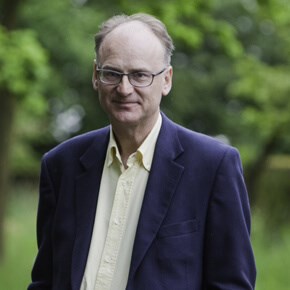‘Lukewarmer’ wrong again about climate change impacts

On 30 January, Viscount Ridley asked the following question during a debate in the House of Lords about climate-related financial disclosures:
“Does my noble friend agree that climate-related financial disclosures should take into account the fact that the consensus among climate economists and, indeed, in the Intergovernmental Panel on Climate Change, is that the economic impacts will be positive for the next 40 or 50 years?”
This question contains claims that are false, and provides further evidence of the propaganda campaign being carried out by so-called ‘lukewarmers’ like Viscount Ridley.
There is no consensus that the economic impacts will be positive for the next 40 or 50 years, and most of the evidence suggests that the aggregate impacts are already negative and will become progressively worse with further rises in global mean surface temperature.
The contribution on impacts, adaptation and vulnerability by working group II of the Intergovernmental Panel on Climate Change (IPCC) to the Fifth Assessment Report in 2014 included a chapter on ‘Key Economic Sectors and Services’ by Doug Arent and co-authors. Section 10.9.2 on ‘Aggregate impacts’ was based on a survey of published academic research and found that two of three published estimates for warming of up to 2°C calculated overall negative economic impacts. It noted that “losses accelerate with greater warming”. Hence Viscount Ridley’s claim about the Intergovernmental Panel on Climate Change was wrong.
A more up-to-date survey by William Nordhaus and Andrew Moffat, called ‘A survey of global impacts of climate change: replication, survey methods, and a statistical analysis’, was published in July 2017. It found that 5 of 7 estimates of impacts were net negative for warming of 2°C or less. Hence Viscount Ridley’s assertion that there is a consensus among climate economists that the economic impacts will be positive for the next 40 or 50 years was entirely incorrect.
I have written to Viscount Ridley to make him aware that his errors have been spotted. It is somewhat surprising that he has tried to make such erroneous claims, particularly after the embarrassment of making a similar assertion in an article for ‘The Spectator’ in October 2013, based on a flawed journal article by Professor Richard Tol. Viscount Ridley is a member of the all-male “Academic Advisory Council” of the Global Warming Policy Foundation, which was set up by Lord Lawson to campaign against policies to limit greenhouse gas emissions. Professor Tol was also, until recently, a member of the Council as well.
After being cited by Viscount Ridley, I examined carefully the paper by Professor Tol on ‘The Economic Effects of Climate Change’, which was published in the ‘Journal of Economic Perspectives’ in 2009. I discovered that it was riddled with errors. Furthermore, some of Professor Tol’s other papers contained many of the same mistakes, and some had even creeped in to a late draft of the IPCC chapter on which he was a coordinating leading author.
Professor Tol eventually attempted to amend his 2009 journal article, but after two partial corrections, the editors of the ‘Journal of Economic Perspectives’ were forced to intervene directly themselves by publishing their own note. In their analysis, Nordhaus and Moffat (2017) concluded that the ‘updated and corrected’ version of Professor Tol’s paper still contained many problems, including that “of 21 estimates, 10 were found to be inaccurate or not replicable”.
Viscount Ridley has never acknowledged that his 2013 article in ‘The Spectator’ was based on an erroneous analysis. Given his track record, it is unclear if he will admit that his misled the House of Lords last week.
Bob Ward is policy and communications director at the Grantham Research Institute on Climate Change and the Environment at the London School of Economics and Political Science.

